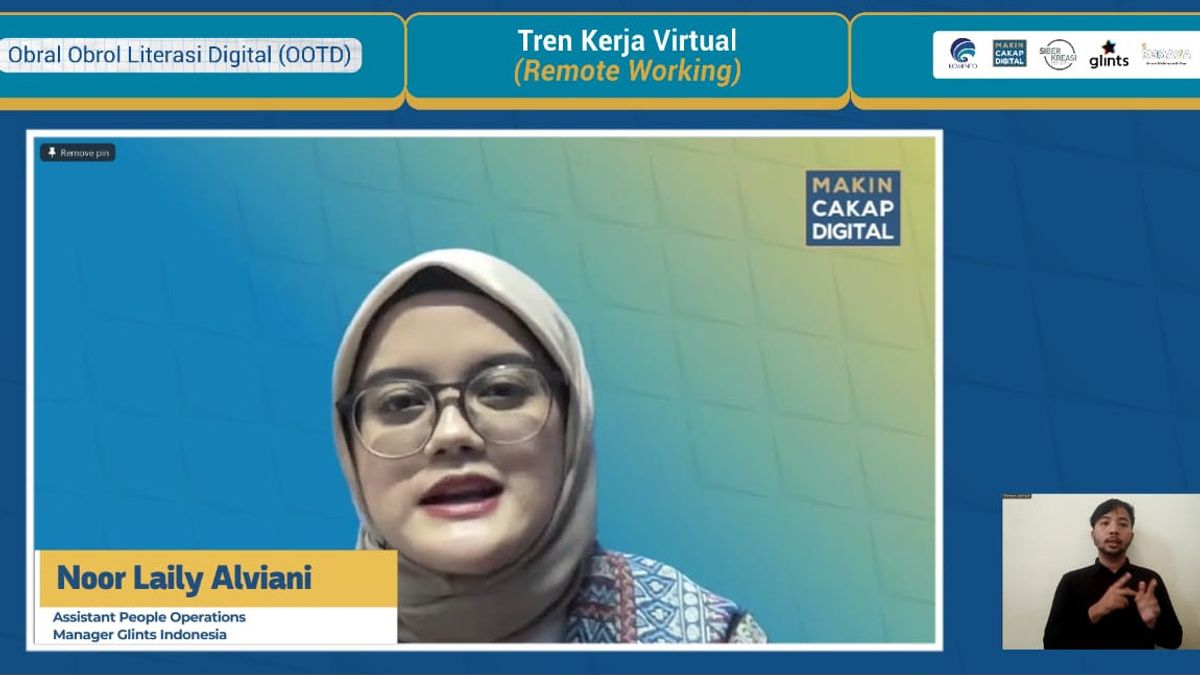JAKARTA - The virtual work trend (Remote Working) has become an increasingly popular phenomenon a few years ago. This trend accelerated after the COVID-19 outbreak hit which used the company to implement remote work models.
Prior to the COVID-19 pandemic, virtual work was just an additional facility. But currently companies like it or not adopt a number of technologies that facilitate their employees to be able to work remotely. Call it Zoom, Google Meet, Teams and others.
Virtual work mode actually brings many benefits including time flexibility, operational cost savings, and increased productivity. But behind these benefits, this work model is also inseparable from a number of challenges ranging from gaps in access to technology, communication problems and collaboration to mental health.
In addition to being able to apply it, workers must at this time also be required to use technology wisely. To increase public awareness in the development of skills and wisely in digital activities, the Ministry of Communication and Information holds an Obral Obral Literacy (OOTD) webinar entitled "Virtual Working Trend (Remote Working)" which will be held on Friday, July 26, 2024.
The benefits of this trend can be felt by two parties, both employees and companies. On the employee side, the benefits of this trend are that they can work anywhere. They don't have to go to the office, they don't have to waste much time going back and forth to the office, besides that an employee can also spend more time with their family.
"To work for mom, she can work while taking care of children," said Noor Laily Alviani, Manager of Glints Indonesia who is one of the speakers at the OOTD "Virtual Working Trend (Remote Working)".
What is felt in this work trend is, continued Noor, between work and life can run in balance. Meanwhile, benefits from the company side can save operational costs. The reason is that the current company may not need to provide an office to cover everyone.
In addition, companies can also recruit employees from anywhere from outside the city, or abroad.
"Companies can look more at the potentials of human resources without having to be blocked by geological factors," said Noor.
SEE ALSO:
However, flexible time can also have a bad impact on workers who are complacent about the comfort of remote work patterns. Workers often forget to distinguish time as workers and moments of living life as ordinary people. This certainly affects the quality of a person's work.
When work is done from home, it can be difficult for a person to maintain a clear separation between work and personal life. This can cause fatigue, stress, and decrease productivity.
"To be able to distinguish, we must be able to make our own schedule when we have to work, when we become ordinary people," said Content Creator Nur Eliana Rosyadah, who is also a speaker at the webinar held by the Kominfo.
This is in line with what is conveyed by WHO. The World Health Organization said that remote workers or from home around the world will experience fatigue, physically and psychologically. According to him, the work from home model can create dangerous conditions, which is to have a negative impact on employee health. This happens when companies and employees do not collectively manage how to work remotely.
The English, Chinese, Japanese, Arabic, and French versions are automatically generated by the AI. So there may still be inaccuracies in translating, please always see Indonesian as our main language. (system supported by DigitalSiber.id)
















